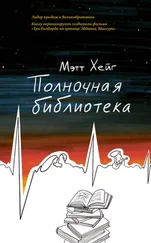Мэтт Хейг - How to Stop Time
Здесь есть возможность читать онлайн «Мэтт Хейг - How to Stop Time» весь текст электронной книги совершенно бесплатно (целиком полную версию без сокращений). В некоторых случаях можно слушать аудио, скачать через торрент в формате fb2 и присутствует краткое содержание. Год выпуска: 2017, Издательство: Canongate Books, Жанр: Современная проза, на английском языке. Описание произведения, (предисловие) а так же отзывы посетителей доступны на портале библиотеки ЛибКат.
- Название:How to Stop Time
- Автор:
- Издательство:Canongate Books
- Жанр:
- Год:2017
- ISBN:нет данных
- Рейтинг книги:4 / 5. Голосов: 2
-
Избранное:Добавить в избранное
- Отзывы:
-
Ваша оценка:
- 80
- 1
- 2
- 3
- 4
- 5
How to Stop Time: краткое содержание, описание и аннотация
Предлагаем к чтению аннотацию, описание, краткое содержание или предисловие (зависит от того, что написал сам автор книги «How to Stop Time»). Если вы не нашли необходимую информацию о книге — напишите в комментариях, мы постараемся отыскать её.
How to Stop Time — читать онлайн бесплатно полную книгу (весь текст) целиком
Ниже представлен текст книги, разбитый по страницам. Система сохранения места последней прочитанной страницы, позволяет с удобством читать онлайн бесплатно книгу «How to Stop Time», без необходимости каждый раз заново искать на чём Вы остановились. Поставьте закладку, и сможете в любой момент перейти на страницу, на которой закончили чтение.
Интервал:
Закладка:
London, now
‘I like the old stuff,’ Martin is saying, nodding at his own wisdom, before taking a sip of his lager. ‘Hendrix mainly, but also Dylan, The Doors, the Stones. You know, stuff before we were born. Before everything was commercialised.’
I don’t like Martin. The great thing about being in your four hundreds is that you can get the measure of someone pretty quickly. And every era is clogged with Martins, and they are all dickheads. I can remember a Martin called Richard who used to stand right near the stage at the Minerva Inn in Plymouth in the 1760s, shaking his head at every tune I played, whispering to the poor prostitute on his knee about my terrible taste in music, or shouting out the name of a Broadside ballad better than the one I was playing.
Anyway, so here we all are, seated around a table in the Coach and Horses. The table is small, a dark wood, the colour and feel of the back of a lute, and barely contains the assortment of drinks and crisps and peanuts which we huddle around. The atmosphere of the pub is quiet and civilised, although maybe that is because I now have the riotous stinking brawl-pit of the Minerva Inn in my mind.
‘Oh, me too,’ says Isham. ‘But then all geography teachers like old rock.’
Everyone eye-rolls Isham’s attempt at a joke, even Isham.
‘But also a bit of eighties hip-hop,’ Martin has to add. ‘De La Soul, A Tribe Called Quest, PE, NWA, KRS-One . . .’
‘Anything modern?’ Camille asks him.
He takes a quick micro-glance at her chest, then up to her eyes. ‘Not really. No one you’d have heard of.’
‘That is possibly true. After all, I am from France. We don’t have music there. Literally none.’ Her gentle sarcasm is lost, or maybe he didn’t hear her, but I like it.
‘Okay,’ Martin says. ‘What are you into?’
‘My tastes are quite eclectic, I suppose. Beyoncé. Leonard Cohen. Johnny Cash. Bowie. Bit of Jacques Brel. But Thriller is my favourite album of all time. And “Billie Jean” is the best pop song ever written.’
‘“Billie Jean”?’ I say. ‘It’s a great song.’
Martin turns to me. ‘What about you, then? You into music?’
‘A little.’
His eyes widen, waiting for me to clarify.
‘Do you play anything, music wise?’ Camille asks me, frowning, as if there is more to the question than it seems.
I shrug. It would be easy to lie, but it falls out of me. ‘Bit of guitar, little bit of piano . . .’
‘Piano?’ Camille’s eyes widen.
Sarah, the sports teacher, in a capacious Welsh rugby shirt, points over to the corner of the room. ‘They’ve got a piano in here, you know. They let people play.’
I stare at the piano. I had been trying so hard to act like an ordinary mayfly that I hadn’t even noticed it when I’d walked in.
‘Oh yes, you can give it a tinkle,’ says the barman, a lanky twentysomething with a weak wispy beard, who is clearing our glasses away.
I begin to panic, the way anyone might panic when being offered a drug they had fought to give up. ‘No, I’m fine.’
Martin, sensing my awkwardness in front of Camille, pushes it a little further. ‘No, go on, Tom. I had a go last Thursday. Have a go.’
Camille looks at me sympathetically. ‘It isn’t compulsory. It’s not an initiation ritual. He doesn’t have to if he doesn’t want to.’
‘Well,’ I find myself saying, ‘it’s been a while.’
I don’t want her to pity me, so maybe it is for that reason that I stand up and walk over to the scratched and well-worn upright piano, passing the only other customers in the place – three grey-haired friends staring in the timeless mute sorrow of old men at their half-drunk pints of bitter.
I sit down on the stool and the room falls quiet with expectation. Well, quiet, except for a little snorted giggle from Martin.
I stare down at the keys. I haven’t played the piano since Paris. Not properly. That was the best part of a century ago. There was something about the piano, compared to the guitar. It demanded more of you. It cost too much emotion.
I have no idea what to play.
I push up my sleeves.
I close my eyes.
Nothing.
I play the first thing that comes to mind.
‘Greensleeves’.
I am in a pub in East London and playing ‘Greensleeves’ on a piano. Martin’s laughter flaps into my head but I keep going. ‘Greensleeves’ blurs into ‘Under the Greenwood Tree’, which makes me pine for Marion, and so I move on to a bit of Liszt’s Liebestraum No . 3 . And by the time that I reach Gershwin’s ‘The Man I Love’ Martin isn’t laughing and I am on my own inside the music. I feel exactly how I used to feel, playing in Paris at Ciro’s. I remember, in short, what the piano can do.
But then other memories rise up, and my head pounds as my mind goes into a kind of cramp of emotion.
When I eventually stop I turn to look at the group. Mouths are open. Camille leads a little round of applause. Even the three old men and bar staff join in.
Martin mumbles the word ‘Greensleeves’. Isham tells me: ‘That was epic!’ Sarah tells Martin: ‘You might be out of a job!’ Martin tells Sarah to fuck off.
I sit on my stool next to Camille.
‘When you played I really had that feeling again. Like I’d seen you playing before. It was like déjà vu or something.’
I just shrug. ‘Well, they say déjà vu is a real thing.’
‘A symptom of schizophrenia,’ says Martin.
‘But truly,’ Camille says, her hand touching the back of mine, then retreating before anyone sees. ‘That was amazing – si merveilleux.’
And I feel a brief but intense surge of desire. I haven’t truly lusted after another human being for centuries, but when I look at Camille, when I hear her kind, strong voice, when I see the delicate creases around her eyes, when I feel the skin of her hand against the skin of mine, when I look at her mouth, my mind switches to what it would be like to be with her, to lose my way with her, to whisper longings into her ear, to devour and be devoured. To wake up in the same bed and talk and laugh and be in comfortable silence with her. To give her breakfast. Toast. Blackcurrant jam. Pink grapefruit juice. Maybe some watermelon. Sliced. On a plate. She would smile, and I see it in my mind, the smile, and I would dare to feel happy with another human being.
This is what playing the piano does.
This is the danger of it.
It makes you human .
‘Tom?’ she says, breaking my reverie. ‘Would you like another drink?’
‘No thanks,’ I say, embarrassed, as though I am a book left open with every secret written on the page for all to see. ‘I think I’ve probably had enough.’
Isham gets his phone out. ‘Anyone want to see the scan?’ he asks. ‘It’s 3D.’
‘Ooh,’ says Camille, ‘me!’
Isham and his wife are expecting a baby. We lean in around the moving ultrasound image. I can remember when the concept of ultrasound was first spoke of in the 1950s. It still, even now, feels like the future. Though it is a strange kind of future that makes you see a potential human as the delicate primitive clay-like being it is. Like watching a half-made sculpture seeking definition.
I notice, for a second, that Camille is staring at the scar on my arm. I pull down my sleeves, self-conscious.
‘We don’t know the sex yet. Zoë wants it to be a surprise.’
He has a tear glistening in his eye.
‘I’d say it’s a boy,’ says Martin, and he points to the screen.
‘That is not a penis,’ Isham says.
Martin shrugs. ‘It’s a penis.’
I stare down at the screen, and I remember what it felt like when Rose told me she was pregnant. I wonder what Rose would have made of sonograms. And whether she’d have wanted to find out the gender. And I sit back in my chair and don’t say much after that. A guilt takes over me. The guilt of desiring someone who isn’t Rose.
Читать дальшеИнтервал:
Закладка:
Похожие книги на «How to Stop Time»
Представляем Вашему вниманию похожие книги на «How to Stop Time» списком для выбора. Мы отобрали схожую по названию и смыслу литературу в надежде предоставить читателям больше вариантов отыскать новые, интересные, ещё непрочитанные произведения.
Обсуждение, отзывы о книге «How to Stop Time» и просто собственные мнения читателей. Оставьте ваши комментарии, напишите, что Вы думаете о произведении, его смысле или главных героях. Укажите что конкретно понравилось, а что нет, и почему Вы так считаете.
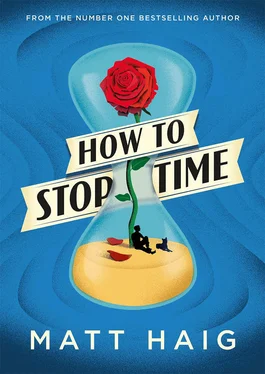
![Мэтт Хейг - Влюбиться в жизнь [Как научиться жить снова, когда ты почти уничтожен депрессией]](/books/28868/mett-hejg-vlyubitsya-v-zhizn-kak-nauchitsya-zhit-sn-thumb.webp)
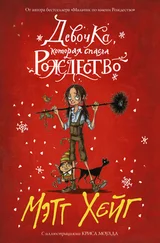
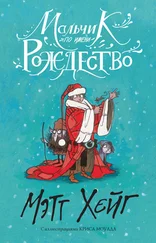
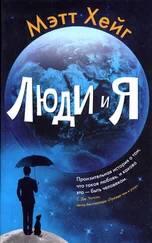

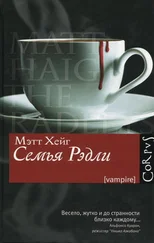
![Мэтт Хейг - Полночная библиотека [litres]](/books/388474/mett-hejg-polnochnaya-biblioteka-litres-thumb.webp)
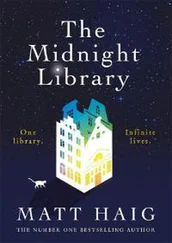
![Мэтт Хейг - Клуб призрачных отцов [litres]](/books/392121/mett-hejg-klub-prizrachnyh-otcov-litres-thumb.webp)

![Мэтт Хейг - Отец Рождество и Я [litres]](/books/421076/mett-hejg-otec-rozhdestvo-i-ya-litres-thumb.webp)
